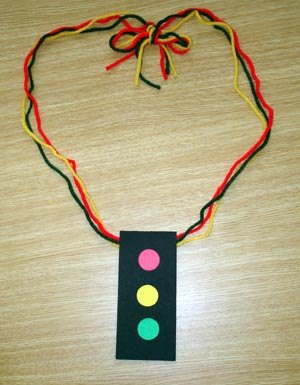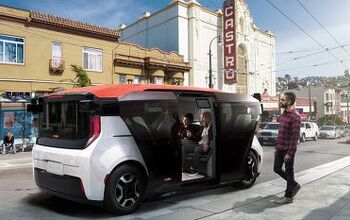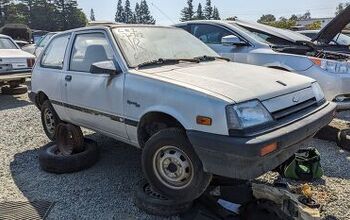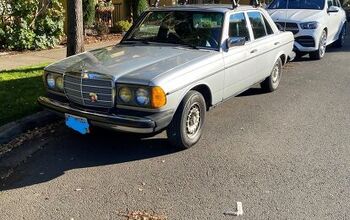California: Legislation Would Create Green Light Cameras
Red light cameras in the state of California originally were first used to issue tickets to the owners of vehicles that entered an intersection after the light had turned red. In just the past few years, the cameras have shifted focus and now primarily ticket the owners of vehicles that make rolling right-hand turns on a red light. Assemblyman Tom Ammiano (D-San Francisco) wants to further transform the system by introducing green light cameras. The new system, which initially would only operate at a single intersection in Ammiano’s district, would target people who turn right while the light is green.
“The city and county of San Francisco may utilize an automated traffic enforcement system to enforce a violation of subdivision (d) of Section 22101, from Market Street onto the Central Freeway located at the intersection of Market Street and Octavia Boulevard,” Assembly Bill 2729 states.
Ammiano introduced the bill at the request of bicycle activists who succeeded in prohibiting right-hand turns at the intersection in question, but existing law does not allow the use of automated machines to issue tickets to cars making turns while the light is green. Despite the push for introducing the new form of enforcement, there is no evidence that such the devices would have any positive impact on safety. No such camera has been used in the US. Some groups have suggested that there are more effective alternatives.
“The auto clubs have expressed a concern with the significant expansion of automated enforcement represented by this bill,” the official legislative analysis of AB2729 explained. “They cite a history of abuse surrounding the use of automated enforcement and a growing objection by the public for this form of enforcement. Consequently, they suggest that engineering solutions be used on an expedited basis to remedy what they acknowledge to be a significant safety problem, rather than expanding the use of automated enforcement. There has traditionally been a high degree of discomfort among legislators as well as the public at large with automated traffic enforcement technology in general.”
An attempt at the beginning of the year by Governor Arnold Schwarzenegger to implement a statewide speed camera program to help balance the budget met with silence in the Democrat-controlled assembly. An Assembly Transportation Committee hearing scheduled for Monday on Ammiano’s bill was postponed.
A copy of the legislation is available in a 150k PDF file at the source link below.
Assembly Bill 2729 (California State Assembly, 4/21/2010)
[Courtesy: Thenewspaper.com]
More by The Newspaper
Latest Car Reviews
Read moreLatest Product Reviews
Read moreRecent Comments
- Theflyersfan The wheel and tire combo is tragic and the "M Stripe" has to go, but overall, this one is a keeper. Provided the mileage isn't 300,000 and the service records don't read like a horror novel, this could be one of the last (almost) unmodified E34s out there that isn't rotting in a barn. I can see this ad being taken down quickly due to someone taking the chance. Recently had some good finds here. Which means Monday, we'll see a 1999 Honda Civic with falling off body mods from Pep Boys, a rusted fart can, Honda Rot with bad paint, 400,000 miles, and a biohazard interior, all for the unrealistic price of $10,000.
- Theflyersfan Expect a press report about an expansion of VW's Mexican plant any day now. I'm all for worker's rights to get the best (and fair) wages and benefits possible, but didn't VW, and for that matter many of the Asian and European carmaker plants in the south, already have as good of, if not better wages already? This can drive a wedge in those plants and this might be a case of be careful what you wish for.
- Jkross22 When I think about products that I buy that are of the highest quality or are of great value, I have no idea if they are made as a whole or in parts by unionized employees. As a customer, that's really all I care about. When I think about services I receive from unionized and non-unionized employees, it varies from C- to F levels of service. Will unionizing make the cars better or worse?
- Namesakeone I think it's the age old conundrum: Every company (or industry) wants every other one to pay its workers well; well-paid workers make great customers. But nobody wants to pay their own workers well; that would eat into profits. So instead of what Henry Ford (the first) did over a century ago, we will have a lot of companies copying Nike in the 1980s: third-world employees (with a few highly-paid celebrity athlete endorsers) selling overpriced products to upper-middle-class Americans (with a few urban street youths willing to literally kill for that product), until there are no more upper-middle-class Americans left.
- ToolGuy I was challenged by Tim's incisive opinion, but thankfully Jeff's multiple vanilla truisms have set me straight. Or something. 😉


































Comments
Join the conversation
"Psarhjinian" suggests that with traffic cams he is protected from cops and their personal agendas. Others have suggested that cameras stop allegations of favoritism or racism. I disagree. I think cameras make favoritism the "default" condition, and make racism nearly impossible to detect. Bureaucrats and govt. "insiders" favored by default: An April 2008 Orange County Register (Santa Ana, California) article pointed out that in California there are nearly one million private vehicles having "confidential" license plate numbers that are protected from easy or efficient look up, thus are effectively invisible to agencies attempting to process parking, toll, and red light camera violations. In 2009 the Register reported that the legislature was extending the "confidential" treatment to even more people! I am guessing that such "protected plate" lists exist in many states. Drunks favored by default: If a live cop sees Psarhjinian run a red, and Mr. "P" was drinking at the time, he will go to jail for a DUI - and I like that. But the camera will let him off with a small money fine, and nothing will be done about his habit of drinking and driving until he causes an accident or kills someone. Uninsured favored by default: If a live cop pulls Mr. P over, he will check for insurance, and confiscate the car if there is none. But with a camera ticket there is no demand to prove that you were insured. Why is that? Geographic profiling: Here in California, no city issues a ticket to 100% of the people photographed - the average is well below 50%. There is a selection process, done by humans. ( For example, in 2004 San Francisco photographed 29,335 cars but issued only 7943 tickets. Los Angeles, in 2003, photographed 8678 cars but issued 3981 tickets. Yes, I know these figures are old. But they remain typical.) We would hope that the police personnel doing the selection would throw out only the tickets where the photos are too blurry, but what is to stop them from giving a free pass to people who live (and vote) in town? Racial profiling: On the east coast ("owner responsibility" states), the camera tickets do not require a close up photo of the driver. But out here in the west ("driver responsibility" states), there has to be a good photo of the driver, and that "face photo" provides potential for racial profiling. I suggest that everywhere in the world the official rules for processing these tickets should include a requirement that the name, address, and face photo of the driver NOT be visible to the person making the decision whether the ticket is issued or not. I also suggest that there be a mechanism to assure that the insiders on the protected list get their proportionate share of tickets. (Right now there is a bill in California's legislature to do just that. AB 2097.)